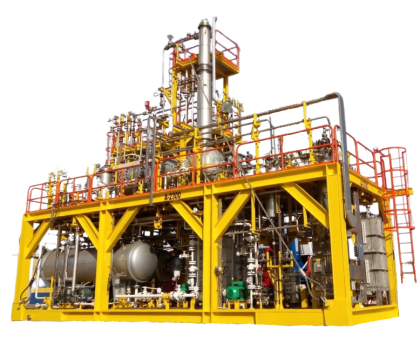At ISS, we specialise in ensuring that natural gas meets stringent pipeline specifications through effective dehydration processes. Our primary focus is on TEG (Triethylene Glycol) adsorption methods, a highly reliable approach to removing water vapour from gas streams, preventing corrosion and safeguarding downstream equipment. Additionally, we offer molecular sieves dehydration, an alternative method known for its precision in achieving ultra-low moisture levels. Our expertise in these advanced techniques ensures that your gas processing operations remain efficient, safe, and compliant with industry standards.

Flow Rates: Customisable to handle gas flow rates ranging from 0.5 to above 100 MMSCFD.
Pressure Levels: Operates efficiently under pressure levels from 500 to 2000 psi or based on project specs.
Water Removal Efficiency: Achieves water dew points as low as -40°C, ensuring optimal dehydration performance.
Specifications: To meet dry gas specs of 1 to 7 lb H₂O/MMSCF.
TEG Circulation Rate: Adjustable circulation rates to match process requirements, ensuring precise control and efficiency.
© 2024 ISSPROCESS. All Rights Reserved.